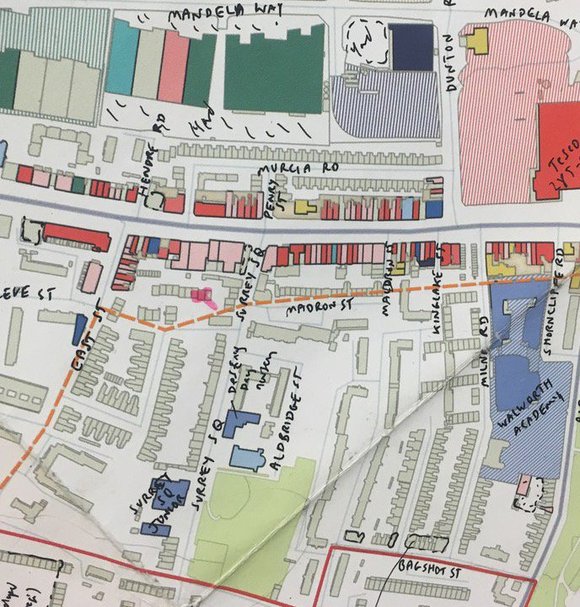Intergenerational Cities
Jump to
Intergenerational Cities asks where are the new collectivities of intimacy and care for the intergenerational city if the single-family dwelling and the nuclear and extended family are no longer fit for purpose?

Drawing by Mark Brearley mapping the complex existing industry of Old Kent Road, Tarsha Finney
Essential to understanding the opportunities and challenges of the global intensification of urban life and of a general move toward the city and its inner urban core, is understanding the parallel question of ageing and labour. The plasticity of human capital, its ‘employability’ within new and emerging labour markets, depends on its capacity for both mobility, and for lifelong learning and adaptation. This demand extends the productive lifespan of human beings beyond concepts of retirement established in the twentieth century, while pulling people out and away from traditional support structures such as community or family, those sites that have traditionally carried the responsibility of care for the old and the very young. The Intergenerational Cities Research Group asks: where are the new collectivities of intimacy and care for the intergenerational city if the single-family dwelling and the nuclear and extended family are no longer fit for purpose, or are being pulled undone?
This research group examines the conditions under which such a question of the relationship between housing and the city may begin to occur: through spatial experimentation and through the innovation and transformation of the performance of housing at multiple scales, in the context of new procurement processes that support such transformation, and through the regulatory framing that needs to transform to support innovation and experimentation with housing ownership.
Staff

Diana Ibáñez López
Project lead

Valerio Massaro
Tutor




